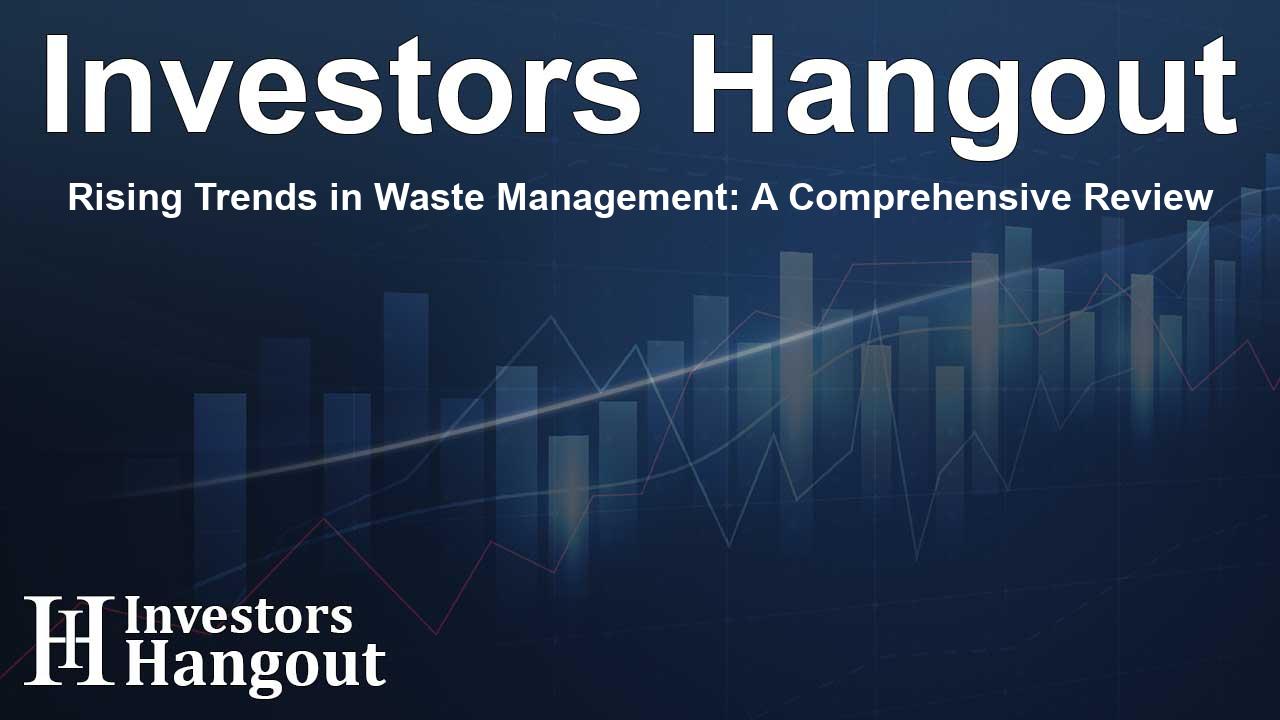Rising Trends in Waste Management: A Comprehensive Review

Understanding the Waste Management Market
In recent years, the global focus on addressing social and environmental challenges has spurred governments to prioritize advancements in waste management systems. The implications of urbanization and industrialization are evident as they play pivotal roles in shaping the market's trajectory, with a notable shift towards recycling, reusing, and converting waste into energy.
Market Growth and Economic Impact
A recent report underscores that the waste management market could reach an impressive USD 2.62 trillion by the end of 2032, driven by a compound annual growth rate (CAGR) of 5.50%. Significant government initiatives, including strict regulations like the Resource Conservation and Recovery Act, are anticipated to further catalyze market growth. The overall economic implications are substantial, as effective waste management directly influences public health and environmental sustainability.
Drivers of Market Growth
The acceleration in electronic consumption across developing nations has led to rising e-waste generation, stemming from factors such as globalization and increasing disposable incomes. Unfortunately, lack of effective management for this waste can severely affect ecosystems. The World Bank is actively investing in waste management projects to enhance waste collection, transportation, treatment, and disposal systems in both urban and rural settings.
Environmental Awareness and Public Policy
In many urban areas, a common issue affecting cleanliness is the disillusionment with litter enforcement, primarily in low-income neighborhoods near landfills. These areas often suffer from hazardous pollutants contaminating air and water sources. Local governments are urged to adopt stringent waste management policies to mitigate these environmental risks.
Europe's Commitment to Circular Economy
The European Union is actively pursuing a circular economy strategy aimed at optimizing resource recovery from waste. Although only 38% of waste in the EU is currently recycled, the European Green Deal pushes for significant legislative and economic reforms to boost recycling rates and minimize landfilling. With a typical European generating around five tons of waste annually, consistent improvements in waste management policies are critical for environmental protection.
Recent Innovations in Waste Management
To keep pace with the fast-evolving waste management landscape, companies are introducing innovative solutions that enhance efficiency and reduce environmental impact. For instance, advanced composting technologies like the Thor system by Veolia aim to comply with California's stringent waste reduction objectives, reflecting a growing trend in sustainable waste management practices.
Competitive Landscape
Prominent players in the waste management industry, including Veolia, Suez, Republic Services, and Waste Connections, are increasingly focusing on sustainable practices, procurement strategies, and technological integration. Their commitment to expanding waste-to-energy systems and enhancing recycling efforts represents a significant shift towards more environmentally friendly operations.
Challenges in Waste Management
Despite the promising growth in the waste management sector, the integral challenge lies in the high costs associated with infrastructure development and maintenance. New recycling facilities are estimated to require between USD 20 million to USD 30 million in North America alone, posing evident barriers for smaller towns and developing nations.
Regional Trends and Outlook
Geographically, the Asia-Pacific region leads in waste management market share, largely due to its urban density and rapid industrialization in countries like China and India. On the other hand, North America benefits from high waste generation rates and advanced waste management systems, while Europe continues to set benchmarks for sustainable practices through effective legislative frameworks.
Frequently Asked Questions
What factors are driving the growth of the waste management market?
Key drivers include increased urbanization, advancements in recycling technology, and stricter government regulations.
How does waste management impact the environment?
Effective waste management helps protect ecosystems, reduces pollution, and promotes recycling, number influencing public health.
What are the major challenges in the waste management industry?
High infrastructure costs and inadequate public awareness are significant hurdles facing waste management initiatives.
How is Europe leading in waste management?
Europe's strong legislation and commitment to the circular economy encourage innovation and higher recycling rates.
What technologies are being adopted in waste management?
Companies are integrating advanced sorting technologies, waste-to-energy systems, and AI-driven solutions to drive efficiency and sustainability in waste management.
About The Author
Contact Kelly Martin privately here. Or send an email with ATTN: Kelly Martin as the subject to contact@investorshangout.com.
About Investors Hangout
Investors Hangout is a leading online stock forum for financial discussion and learning, offering a wide range of free tools and resources. It draws in traders of all levels, who exchange market knowledge, investigate trading tactics, and keep an eye on industry developments in real time. Featuring financial articles, stock message boards, quotes, charts, company profiles, and live news updates. Through cooperative learning and a wealth of informational resources, it helps users from novices creating their first portfolios to experts honing their techniques. Join Investors Hangout today: https://investorshangout.com/
The content of this article is based on factual, publicly available information and does not represent legal, financial, or investment advice. Investors Hangout does not offer financial advice, and the author is not a licensed financial advisor. Consult a qualified advisor before making any financial or investment decisions based on this article. This article should not be considered advice to purchase, sell, or hold any securities or other investments. If any of the material provided here is inaccurate, please contact us for corrections.
